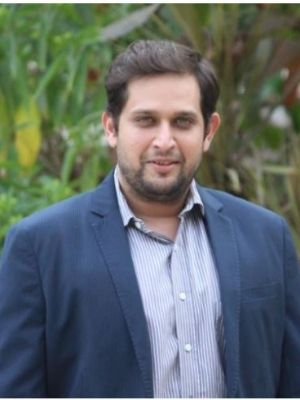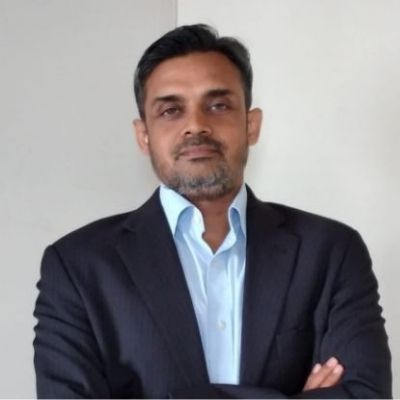In a country where only 20 percent of primary-secondary students are enrolled in English-medium schools, the dearth of content in vernacular languages has been a key barrier to penetration of online learning. Therefore, to ensure universal access to online education, ed-tech companies must make more content available in vernacular languages.
While the Covid-19 pandemic has ushered in an overdue revolution in India’s K-12 education landscape by accelerating the adoption of technology in the teaching-learning process, it has also exacerbated prevailing inequities in the sector.
Despite high-end private schools in India’s urban clusters making a smooth transition to virtual teaching-learning amid the pandemic, a great majority of primary-secondaries in the country’s rural hinterlands found themselves unprepared for this transition.
Moreover, in a country where only 20 percent of primary-secondary students are enrolled in English medium schools, the dearth of content in vernacular languages has been a key barrier to penetration of online learning . Therefore, to ensure universal access to online education, ed-tech companies must make more content available in vernacular languages.
Discerning the demand-supply gap in vernacular learning content, a handful of ed-tech companies have ventured into this untapped market in recent years. Their innovative solutions have contributed to making quality education in vernacular languages accessible to children and youth across the country’s socio-economic spectrum besides enabling learning continuity of students during the past eight months of schools closure.
Headquartered in Mumbai, eSense Learning Pvt. Ltd — an initiative of Navneet Education Ltd. – is a digital education company providing e-learning solutions to schools and students in India. With an extensive reach to communities at the grassroots level, eSense presently offers digital learning solutions in English, Gujarati and Marathi to over 3,500 schools in Maharashtra and Gujarat.
 “It lies in the Navneet Group’s collective ethos to serve the educational needs across various societal strata – with a core focus on catering to the vernacular needs of the students. Rooted in this conviction at a deep, fundamental level, we aim to roll out unique, relevant educational offerings of the highest quality at the lowest affordable price for students right to the grassroots level,” says Harshil Gala, director, eSense. An alumnus of the Narsee Monjee College of Commerce (Mumbai) and the University of Nottingham (UK), Harshil is a seasoned corporate professional with over a decade’s experience in sales, marketing, brand building, operations and people management in the e-learning industry.
“It lies in the Navneet Group’s collective ethos to serve the educational needs across various societal strata – with a core focus on catering to the vernacular needs of the students. Rooted in this conviction at a deep, fundamental level, we aim to roll out unique, relevant educational offerings of the highest quality at the lowest affordable price for students right to the grassroots level,” says Harshil Gala, director, eSense. An alumnus of the Narsee Monjee College of Commerce (Mumbai) and the University of Nottingham (UK), Harshil is a seasoned corporate professional with over a decade’s experience in sales, marketing, brand building, operations and people management in the e-learning industry.
eSense’s flagship e-learning product TOPClass — an innovative Smart Classroom solution with syllabus based content that focuses on simplifying the teaching process and enhancing the learning experience in schools — is presently being used by over 4,000 schools and has enabled the training of 75,000 teachers.
Launched in 2016, the TOPScorer app — a Self-study/Homework app that includes audio-visual content (2D/3D), assessment software, question bank and analytical reports — has witnessed exponential growth since the onset of the Covid-19 pandemic. Thus far, the app has clocked up 25 lakh downloads, 8 lakh user registrations, 10 lakh viewing hours, over one crore MCQs answered and 50,000 daily active users.
“Vernacular-medium schools have suffered the most in this pandemic. We all hear of one-off stories and feel like the industry is surviving, but it’s far from the truth. Very few schools have managed online classes, parents are not paying fees, and teachers keep getting pulled for Covid duty. The path to recovery is going to be harder as many systems of the schools are broken and they will need fixing. Our customers have truly been the outliers amid the pandemic as they have managed to continue learning online using our app and e-learning platform. It is the sheer motivation of the teachers that has made this possible. We consider ourselves extremely fortunate to be associated with highly motivated and extremely talented teachers,” says Harshil Gala.
Likewise, Greater Noida headquartered Innovant Energotech Solutions Private Limited (IESPL, estb. 2017) has been enabling students and career aspirants to advance their career and life through its flagship ed-tech platform eDelta. Created by academicians and professionals, eDelta presently caters to three verticals — school and competitive exams, future skills and professional courses, and global advantage.
eDelta delivers STEM (Science, Technology, Enginnering, Maths) learning in an innovative and engaging manner in English, Hindi and Kannada. The company’s learning outcome based and skill mapped education model has garnered much appreciation from NITI Aayog (the apex federal planning body of India). IESPL has also been recognised as a Strategic Startup by the Department of Industrial Policy and Promotion (DIPP), Ministry of Commerce, Government of India.
 “Reaching children and youth who can’t afford high-priced edutech learning solutions motivated us to start the venture. This is precisely why we partner with foundations, local networks and governments and serve society as a social enterprise,” says Vivek Singh, founder-CEO and business head, IESPL. An alumnus of the Indian School of Business, (Hyderabad), Kings College (London) and University of Cambridge (UK), Vivek has over two decades’ management experience in global technology firms and is presently associated with several industry forums and government committees in advisory capacity.
“Reaching children and youth who can’t afford high-priced edutech learning solutions motivated us to start the venture. This is precisely why we partner with foundations, local networks and governments and serve society as a social enterprise,” says Vivek Singh, founder-CEO and business head, IESPL. An alumnus of the Indian School of Business, (Hyderabad), Kings College (London) and University of Cambridge (UK), Vivek has over two decades’ management experience in global technology firms and is presently associated with several industry forums and government committees in advisory capacity.
Operating primarily in north India, eDelta’s vernacular learning solutions are also integrated in the delivery models of a few organisations in the southern and north-eastern regions of the country. Thus far, the company has clocked up 100 School Partner Programs with AIC – BIMTECH and also collaborated with open network schools to deliver its e-learning resources to over 150,000 students.
Sharing his insights on the impact of the pandemic on e-learning, Vivek says “We deliver better in times of crises. During the pandemic, students started responding more positively to our e-learning solutions. Our offerings in hybrid mode (self-paced and online classes) for classes VI to XII, IIT, NEET, Banking and Armed Forces careers, have become very effective from the supplemental learning perspective. eDelta’s pedagogy and courses have not only helped the students in clearing their concepts but also helped them in advancing their success especially during pandemic when the CLT mode is not possible due to prolonged closure of schools. We have more than 30 programmes and courses in offering to thousands of students in selected states of India. The number of students opting for our courses have increased manifold over the last eight months with a countrywide profile.”
Vivek also heads Saraswati Seva Foundation (SSF, estb.2016) — a rapidly growing non-profit organisation — which he co-promoted along with Rahul Singh, a sustainability expert and professor at Birla Institute of Management Technology (Greater Noida). SSF partners with other development agencies and institutions to promote grassroots changes in India’s rural expanses through education, skilling, women empowerment and farmer empowerment initiatives.
Committed to serving underprivileged communities through knowledge tools, SSF focuses on STEM C (Science, Technology, Engineering and Mathematics, and Computer) learning. SSF has also partnered with tech companies for gaming-based fun-learning, eg. the multilingual A4 App that can be used in nine Indian languages.
SSF presently delivers its vernacular learning solutions to schools and students in Ayodhya (Uttar Pradesh), Gudibande (Karnataka), Pune (Maharashtra) and select areas of Madhya Pradesh.
Hopeful about the future despite existing concerns, Vivek says, “Digital integration has made English-based content easily available on subscription/free of cost but regional instructions are limited. In the short-term, this abrupt change is causing angst amongst the students and teachers (in the vernacular space) but in the medium-long term, they will hopefully gain. Learning systems are converging and NEP 2020 is a push in that direction. So, COVID co-existing with the policy change will help close the systemic gap. Macro-level change from English to vernacular based mainstream learning will bring out the hidden skill potential of India and catapult India’s demographic boon to its advantage. It will also spur new change agents like SSF to roll out quality learning in new vernacular packages.”
“The future outlook of these courses looks very promising due to the increased acceptance of online learning among the students. We are also in the development stage of our courses in the modular form where students will be able to pick and choose the specific chapters of a subject depending on their difficulty level in their understanding of the concept and buy online. The modular pricing will make our courses more affordable in very near future. The goal is to make quality resources and eLearning affordable,” he adds.
Posted in Corporate, News


























